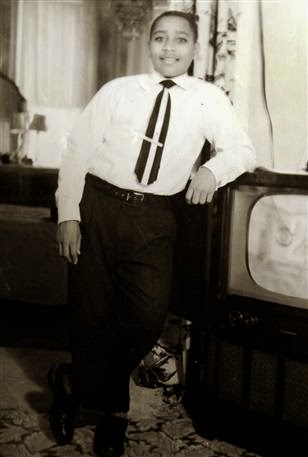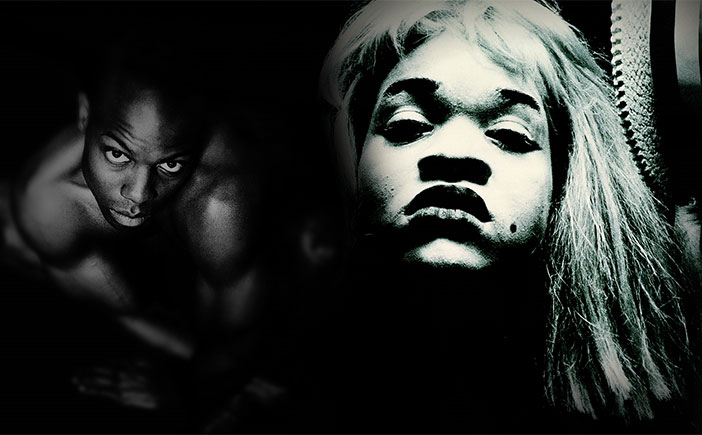'Through a Lens Darkly: Black Photogarphers and the Emergence of a People' Is Playing at a Theater Near You for 2 Weeks. You Should See It!
The documentary begins with a memory. It’s the kind of memory that most black people, in one way or another, can recall: the moment when we realized we were black, and that, somehow, being black was something to be ashamed of. For director Thomas Allen Harris, that moment came early in his boyhood, when his father snapped at him for having too much Vaseline on his face. His father’s words, seemingly innocuous, stung. “Do you want people out there to think you’re a greasy monkey?”
It’s that memory and the residual pain it caused for Harris that serves as the catalyst for "Through A Lens Darkly: Black Photographers and the Emergence of a People." Juxtaposing his own family history with that of the history of the black image in photography, Harris weaves a tale all at once personal and political that examines how the representation (and lackthereof) of black people in America has affected, and even shaped the black identity.
The film calls on an a wide array of historians and photographers to help tell the story of black photography, people like Deborah Willis, Clarissa Sligh, Lyle Ashton Harris, Anthony Barboza, and Carrie Mae Weems (who this year became the first black artist to get a retrospective at the Guggenheim). Their insights into the importance of black people authoring their own identities are fascinating, particularly the discussions about black female photographers, colorism, and the role gay and trans black people have played in the making of the great American photo album.
We’re reminded, of course, that for a long time, black people were ostensibly excluded from that metaphorical album to make room for the lily-white nuclear families who represented “real” Americans. Indeed, there were no black artists even included in the history books of photography. There were of course photographs of black subjects, but these were taken by white people and, as photographer Weems once eloquently explained, often presented black subjects as “scientific profiles” and “anthropological debates.”
The images did not reflect those that Harris saw in his family photo albums as a child, pictures taken by his grandfather (who gave him his first camera) that showed black people with dignity, and with joy. Instead, early images of black folk in America often sought to dehumanize the black subject. Black people were the minstrel and the mammy, Black Sambo, watermelon-eating babies as alligator bait, and (on postcards) deformed bodies hanging from trees as smiling white crowds looked on with the casualness of a Sunday morning at the park.
Harris’s deeply personal and poetic narration, his battles to accept the color of his skin, his hair, his lips, his nose, anchor the documentary. It’s not often that we see this level of sheer honesty that, ultimately, is incredibly universal. Because this is a documentary that seeks to spark a conversation as much as it seeks to teach and enlighten. Late in the film, Harris excerpts an old interview of the seminal black artist and photographer, Roy DeCarava. DeCarava explains the power of images thusly: “When you look at a photograph, it’s happening now. It’s not then.”
And therein lies perhaps the biggest strength of "Through A Lens Darkly." It shows us the disturbing lynch photographs and minstrel illustrations in all their startling, horrific detail. But it also counterbalances them with countless photos of black people by black people, pictures from family albums all the way to the professional work of some of the most seminal black photographers in America. There’s an understanding that the lynch photos, the regal pictures of Booker T. Washington and Sojourner Truth, the images of Weems staring straight into the camera in her Kitchen Table Series, all lie on a continuum. They’re happening now. And its through these images we’re privy to a secret history of the black photographer and the black subject, a history reaching far back into the past and shining a light on those who paved the way for everyone, all of us, to affirm our own identities through the images we take of ourselves and each other.
Sundance Film Festival 2014 selection, made its US theatrical premiere on Wednesday, August 27, presented by Film Forum (NYC), where it'll enjoy a 2-week engagement.
























